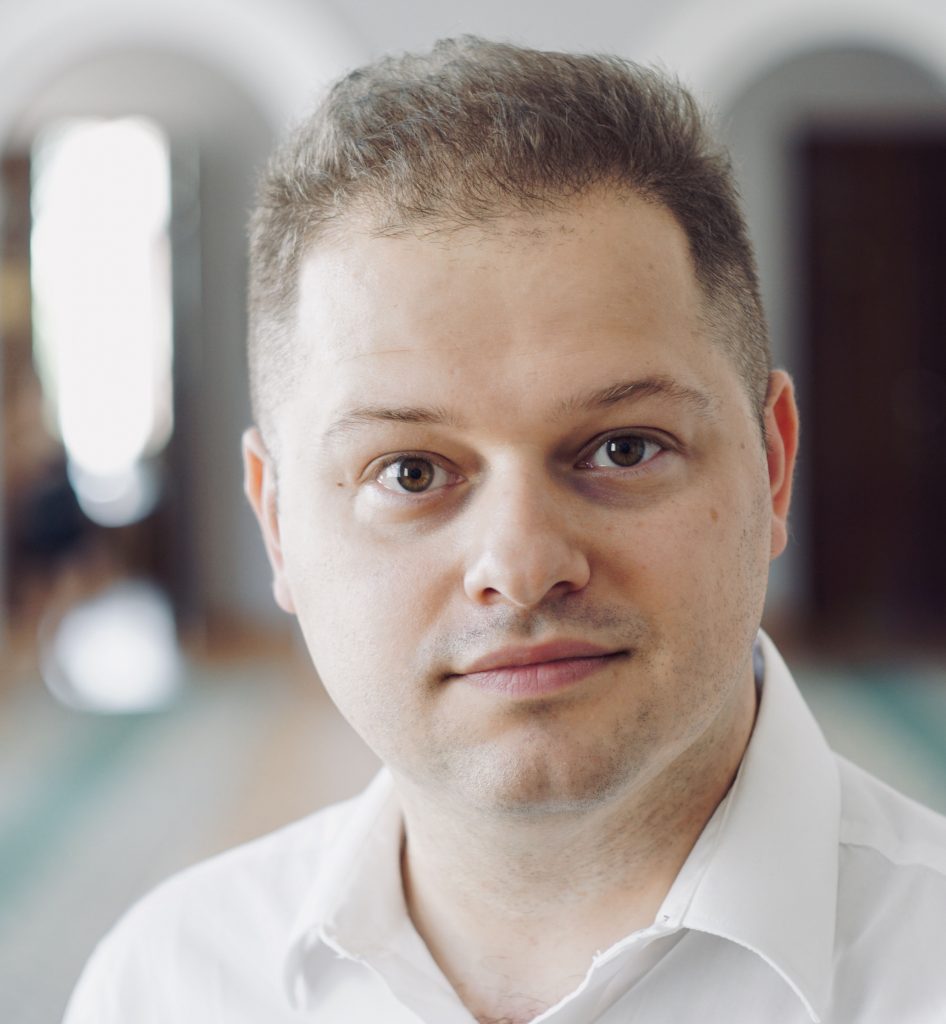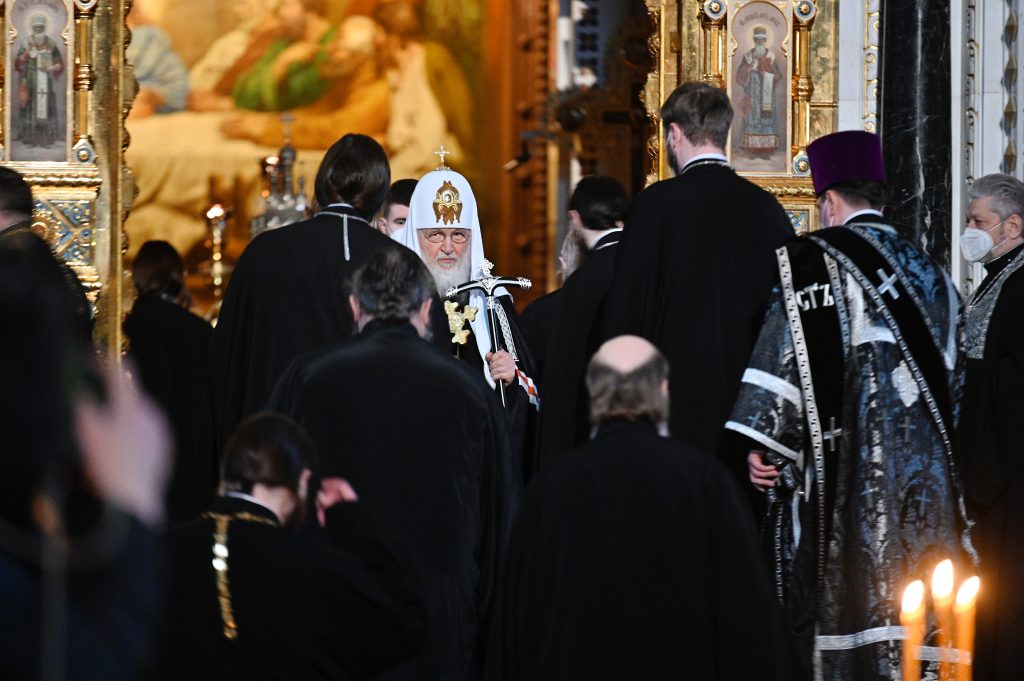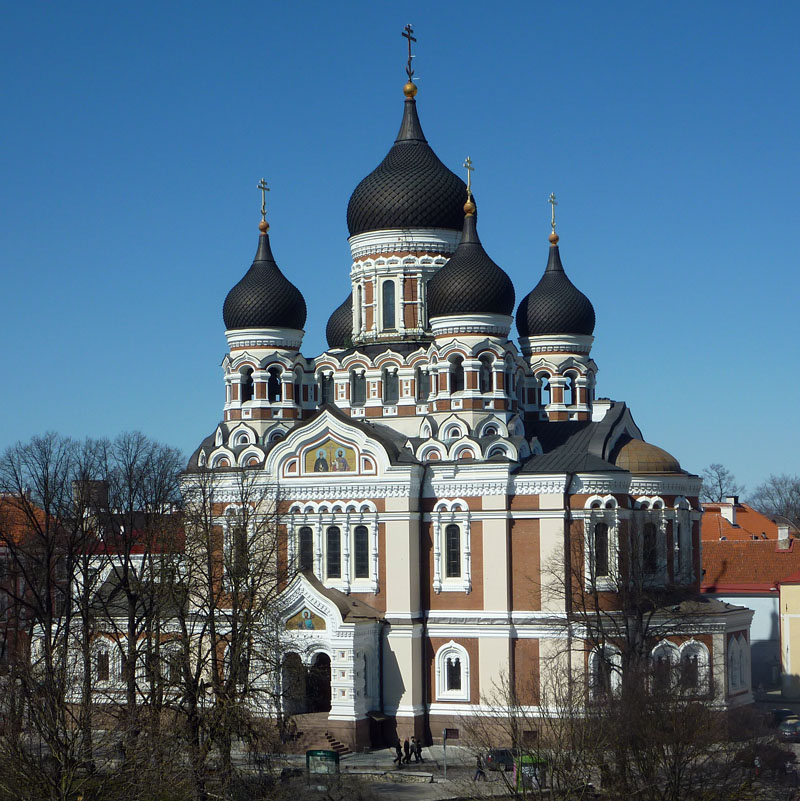
Dmytro Vovk is a visiting associate professor at Benjamin N. Cardozo School of Law. The following post is based on his remarks at the ICLRS 31st Annual International Law and Religion Symposium, 8 October 2024.
In July 2021, Russian president Vladimir Putin published an article “On the Historical Unity of Russians and Ukrainians.” The article, which many now consider to be a prologue to or a sign of preparation for the full-scale invasion of Ukraine, contains the following passage:
People [in the territories of contemporary Russia and Ukraine] spoke the same language. Their faith was Orthodox. . . . [At the beginning of the eighteenth century] [p]eople of all orders and degrees considered themselves Russian and Orthodox. . . . The incorporation of the western Russian lands into the single state was not merely the result of political and diplomatic decisions. It was underlain by the [peoples’] common faith, shared cultural traditions, and . . . language similarity.
Putin refers to a common language and common faith to explain that Russians and Ukrainians are virtually the same people. He finishes the article with cynically (as we now understand) recognizing Ukraine’s sovereignty but reiterating that Russians and Ukrainians are the same people:
We respect Ukrainians’ desire to see their country free, safe and prosperous. [But] I am confident that true sovereignty of Ukraine is possible only in partnership with Russia. Our spiritual, human and civilizational ties formed for centuries and have their origins in the same sources, they have been hardened by common trials, achievements and victories. . . . For we are one people.
In his address of 21 February 2022 (two days before the invasion) Putin reiterated these same points but this time in the form of accusations. Ukraine has no real sovereignty (it’s under the Western control), and it’s a superficial political entity with the main goal of separating one people who speak one language and belong to one religion: Separating politically. Separating morally by imposing so called “Western values” wrapped in the guise of human rights. And separating religiously.
I use these quotes to demonstrate that there is a religious component to Putin’s aggression against Ukraine. Putin has utilized Christian Orthodoxy and its social teachings to justify his attack on Ukraine. The Russian Orthodox Church operates as his loyal and proactive ally in this aggression. The Church has developed the narrative of the Russian world (Russky mir) as a spiritual and civilizational entity that is significantly more vast than the area circumscribed by Russia’s current political borders. As Kristina Stoeckl points out, the Russian world unites all Russians (by ethnicity, language, and culture) and all people who share the values of the so-called “Russian civilization,” and it obliges the Russian state with the mission—or, if you will, entitles it with the right—to protect them.
In his sermon of 6 March 2022, Patriarch Kirill preached that Russia started this war to protect the Orthodox people and the land they live on from the “depraved Western world,” poisoned with liberalism and secularism and attempting to impose its values (Kirill specifically mentioned “gay pride parades”) on Russia and Russians. Thus, according to the Patriarch of Moscow, the Russian invasion of Ukraine is not an aggressive war but a defensive one. This twisted logic allows to Kirill to theologically justify the Russian war since, ironically enough, ROC teachings prohibit any form of aggressive war.

The ROC and its leadership do not limit themselves to theological support of the war. The ROC is involved in the promotion of the Russian narrative of the “defensive war” in various international fora, including the UN, OSCE, and other global and regional organizations. ROC clerics work as war propagandists on Russian TV and in social media. NGOs affiliated with the Church collect donations, aid, and ammunition for the Russian army. And ROC priests are presented at the battlefield as formal and informal chaplains and even participate in fighting—which is highly unusual, as Christian ecclesiastical law strictly prohibits clerics from actively engaging in warfare.
ROC clerics are also involved in the re-education of Ukrainian children deported from Ukraine, which is allegedly a war crime. In 2023, the International Criminal Court issued warrants for the arrest of Vladimir Putin and Maria Lvova-Belova, Russian Commissioner for Children’s Rights and a person affiliated with the ROC, as they are allegedly responsible for the unlawful deportation of children from Ukraine to Russia during the invasion. Lvova-Belova stated in an interview, in remarkable Orwellian style, that deported children had at first resisted Russian indoctrination but had since learned “to love Russia.”
This involvement of the Russian Church in the war has already provoked several international and national responses. This year, after the death of the Russian oppositional politician Alexey Navalny, the Parliamentary Assembly of the Council of Europe (PACE) adopted Resolution 2540 (2024), which stated that the Russian world has become an ideological pillar of Putin’s dictatorship:
Vladimir Putin’s regime has committed to the neo-imperialistic ideology of Russkiy Mir (the “Russian world”), which the Kremlin has turned into a tool for promoting war. This ideology is being used to destroy the remnants of democracy, to militarise Russian society and to justify external aggression to expand the Russian Federation’s borders to include all territories once under Russian domination, including Ukraine. The hierarchy of the Moscow Patriarchate of the Russian Orthodox Church, including Patriarch Kirill, has been championing the Russkiy Mir ideology, declaring the war against Ukraine and the “satanic” West as a “holy war of all Russians”, urging Orthodox believers to sacrifice themselves for their country.
In the subsequent Resolution 2667 (2024), the PACE reiterated its call to recognize the ROC as a Russian tool of influence and propaganda.
In addition, the recognition of the role the ROC has played in this war can open and has already opened in some countries the discussion or the legal possibility of imposing sanctions against the Church, its clergy, and affiliated individuals.
For example, even while the ROC is heavily involved in spreading Russian propaganda in the West, in Belgium ROC communities are still entitled to receive public funding. This fact provokes criticism from those who find no logic in Western states’ funding of communities that are utilized or potentially can be utilized by Russia to justify the war that Russia itself calls “the war against the West.”
The Czech Republic revoked the Moscow Patriarchate representative’s residency and deported him from the country due to national security concerns.
In Estonia, the government is forcing the Estonian Orthodox Church affiliated with the Moscow Patriarchate to break its ties with Moscow. The Estonian Church agreed to change its charter to cut administrative ties with Moscow, but the government insisted that ecclesiastical ties be cut as well. The previous head of the Estonian Church, a Russian citizen, was denied Estonian permanent residency and had to leave the country. The government further publicly and unequivocally condemned the Russian aggression against Ukraine as well as Patriarch Kirill’s recent words about capitals of all post-Soviet countries (including Estonia) as “centers of the Russian world.”

In Latvia, the Parliament, presumably under an informal agreement with a local bishop, declared the Latvian Orthodox Church affiliated with the ROC an ecclesiastically independent church.
Finally, in August 2024 the Ukrainian Parliament adopted a law banning the ROC for its justification and active support of the Russian aggression against Ukraine. The law recognizes the ROC as part of the Russian state and as an accomplice—a partner in the war crimes committed by the Russian regime. The law also establishes a legal mechanism to ban the Ukrainian Orthodox Church (UOC) affiliated with the ROC, defining affiliation very broadly. Even a blessing received by a religious organization from the head of the Russian Church is enough for the organization to be considered affiliated with Russia.
The nexus between religious freedom and national security is fraught. On one hand, Ukraine is experiencing Russia’s brutal aggression, and several UOC clerics have been convicted of committing treason, engaging in espionage, or justifying the Russian aggression. On the other hand, the law will potentially affect the UOC’s 8000 religious communities and 10,000 clerics, in addition to many more believers—the absolute majority of whom are completely loyal to the Ukrainian state. This makes the ban of the UOC a disproportionate measure.
The Ukrainian law and its adoption have provoked harsh debates over its necessity and compliance with international standards and, more broadly, over religious freedom and national security. For example, in the United States the 2024 Republican vice presidential nominee, J.D. Vance, accused Ukraine of cracking down on religious freedom in Ukraine by banning the UOC. On the other side, some U.S. religious freedom defenders argue that Ukraine’s law complies with international standards and Ukraine has no religious freedom problem at all. They reason that Ukraine is experiencing an existential threat and that it is up to Ukraine how to address it.
In my view, both approaches are problematic. The view that religious persecution is widespread or, as a UOC lawyer and lobbyist in the United States said, “religious cleansing” is occurring in Ukraine is simply false, as the country still enjoys one of the highest levels of religious freedom in the region. And in times of the war, Ukraine obviously enjoys very broad discretion in dealing with security concerns. But this does not mean that Ukraine is allowed to ignore international human rights standards. It is crucial that Ukraine survive after the war, but it is also important that Ukraine survive as a democracy and as a religious freedom champion, as it has been since the collapse of the Soviet Union.
The Ukrainian case demonstrates that international actors, including human rights defenders, should have a more nuanced approach to the Putin regime’s utilization of the ROC as a soft or hard power. Such an approach will help find a proper balance between effectively countering the Russian war (including the ROC as its promoter and supporter) and Russian propaganda and preserving religious freedom as a basic premise of Western societies.
